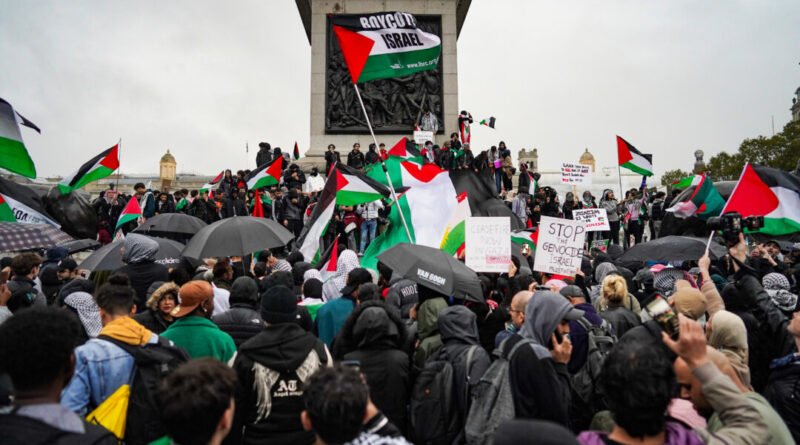Review by Authorities Recommends Arrests for Celebrating Terrorism in Official Anti-Extremism Report
Lord Walney’s review emphasized the need for current antiterrorism laws to be interpreted more expansively to enable the arrest and prosecution of individuals who glorify terrorism.
According to the government’s anti-extremism adviser, celebrating terrorist acts or praising banned groups should be considered as a type of “indirect encouragement” of terrorism, warranting arrest and legal action.
He proposed that if the courts do not support this understanding of existing laws, “the Government should consider the possibility of introducing a summary-only terrorism offense that explicitly prohibits the celebration, praise, glorification, or endorsement of acts of terrorism, proscribed terrorist groups, or terrorists.”
Lord Walney highlighted how there were only a limited number of cases brought before the courts where individuals expressed approval for jihadist violence following the Oct. 7 attacks, often seen at anti-Israel protests.
He voiced concerns that such occurrences suggest inadequacies within the justice system. Lord Walney noted that the legislation on glorification in the Terrorism Act 2006 does not address glorification explicitly, but rather focuses on the encouragement of terrorism, with glorification serving as a means through which an offender indirectly inspires others to commit terrorism-related offenses.
He expressed that the current interpretation of the legislation implies that glorification of terrorism must be construed in a way that could be seen as an enticement to engage in terrorism.
The anti-extremism adviser underscored the need for transparency in charging decisions, recommending various changes aimed at safeguarding democratic values from intimidation, including reviewing police and CPS decisions concerning charging protesters accused of supporting terrorism to ensure the proper implementation of laws.
Lord Walney further pointed out the need for amendments to the Public Order Act 1986 to broaden the grounds upon which a police force can prevent marches on specific dates beyond the risk of serious public disorder, thus strengthening the legal framework for addressing political violence and disruption.
Additionally, he proposed mechanisms for businesses and individuals affected by unlawful protests to claim damages from protest organizers and suggested that protest organizers contribute to policing costs during significant demonstrations causing disruption or law-breaking.
Both Prime Minister Rishi Sunak and Home Secretary James Cleverly acknowledged the importance of addressing extremism and ensuring law and order are maintained, with Cleverly pledging to consider Lord Walney’s report and its implications for disruptive and extremist activities in communities.
The Campaign Against Antisemitism welcomed the report and echoed the need for updates to the criminal justice system to combat the threats identified in the report.
PA Media contributed to this report.
***
PA link: (for sunak’s and cleverly’s comments: https://explore.pa.media/create/events/paevent:56bed83f09a8490a4e9fb89f846c314937f2c0577f48cb130f8b9c8837924919
***





